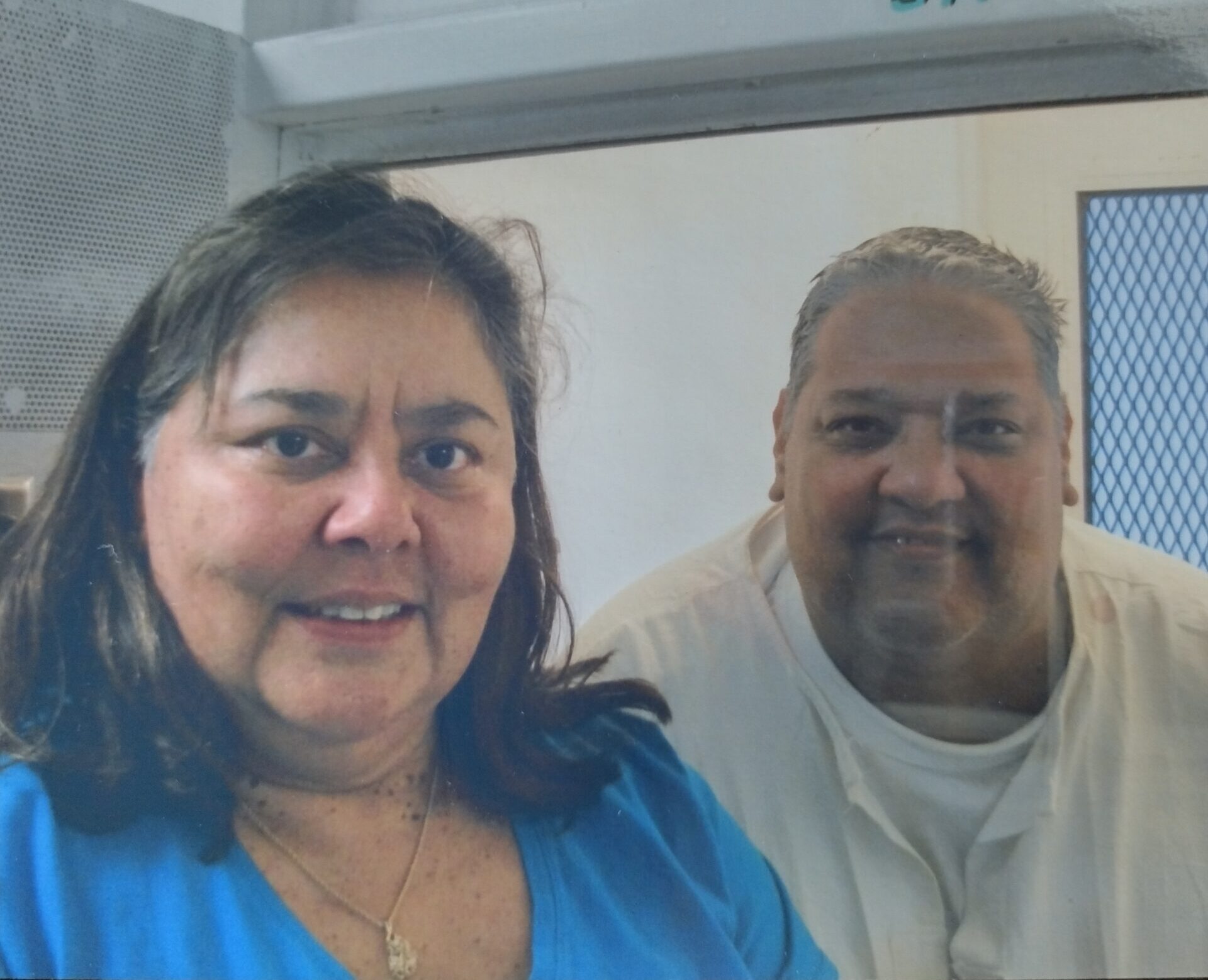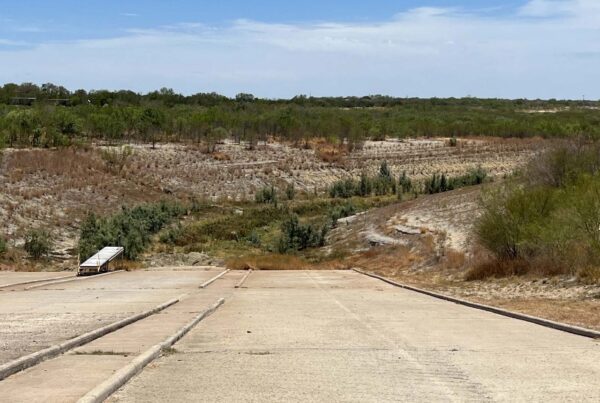We recently heard from Delia Perez Meyer, whose brother Louis Castro Perez was sentenced to death in 1999 for the brutal murders of two women and one girl. He was never executed, but Perez died in May while still on death row. Perez maintained his innocence until his last breath.
After Perez’s conviction, Meyer became a staunch death penalty abolitionist, working with groups like Texas After Violence Project and Witness to Innocence. Although her brother is gone, Meyer continues to fight for his exoneration and the end of the death penalty.
Her brother’s conviction left her with a sense of obligation toward the death penalty abolition movement, but Meyer first had to work through her own grief.

Delia Perez Meyer visits her brother, Louis Castro Perez at the Polunsky Unit in Livingston, Texas in 2016.
“I just couldn’t believe that this was happening to him and to our family,” Meyer said. “It took me almost two years to get up and start the fight.”
Meyer and her fellow abolitionists have personally witnessed many executions over the last 25 years. But, she said, they have also had success stopping some executions. At least some of that success can be attributed to former death row inmates who became activists after their exoneration.
With the activist group Witness to Innocence, Meyer worked alongside death row exonerees like Shujaa Graham, Gary Drinkard and Ron Keine. Meyer said standing with exonerees gave her the strength to speak publicly about her brother. They shared stories of innocence and wrongful convictions at rallies and in the halls of state legislatures.
Although the death penalty remains legal in Texas, a lot has changed since Meyer began her activist work. A 2021 University of Texas/Texas Tribune poll found that 63 percent of registered voters support the death penalty. That number was down from 78 percent in 2010 when the poll started.
Nationwide executions spiked in 1999, the same year Perez was sentenced. That year, 98 people were executed. The number of yearly executions has trended down since then, bottoming out at 11 in 2021.
Throughout her time as a death penalty abolitionist, Meyer has maintained lasting friendships with other death row inmates’ families. Their shared grief bonds them together as a community and fuels their activism.
Three brothers, Gavin, Nick and Nathan Been, started the activist group, Kids Against the Death Penalty in honor of their uncle, death row inmate Jeffery Wood. As kids, the Been brothers accompanied their mother Terry to marches and demonstrations against the death penalty. That’s where they first met Meyer.
“They were just knee-high to a grasshopper, but they were out there with us, holding signs,” Meyer said.
As the years passed, those boys became men.
“To see those little kids grow up, graduate from high school, go to college, they’ve been married and now they’re having children and their uncle is still on death row,” Meyer said. “That is my motivation.”
Meyer said there is one question that people often ask her at anti-death penalty demonstrations: If one of her children were murdered, would she want the murderer to face the death penalty? She admits that it’s a difficult idea to wrestle with. Even though her brother’s claims to innocence inspired her activism, Meyer believes the death penalty is an immoral punishment even for those who are legitimately guilty.
“Whether they did it or didn’t do it, that’s not an issue,” Meyer said. “We’re either going to stop killing our own citizens, or we’re not.”














